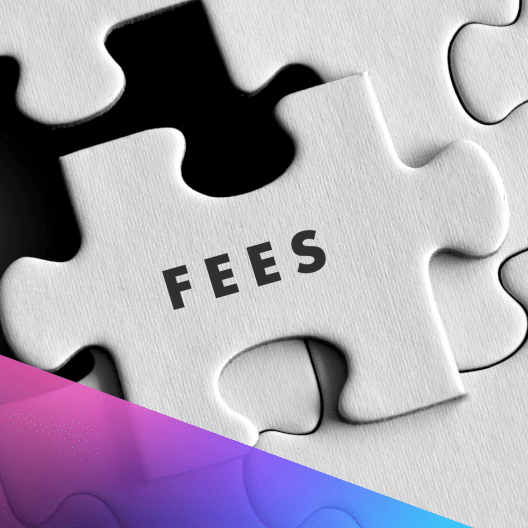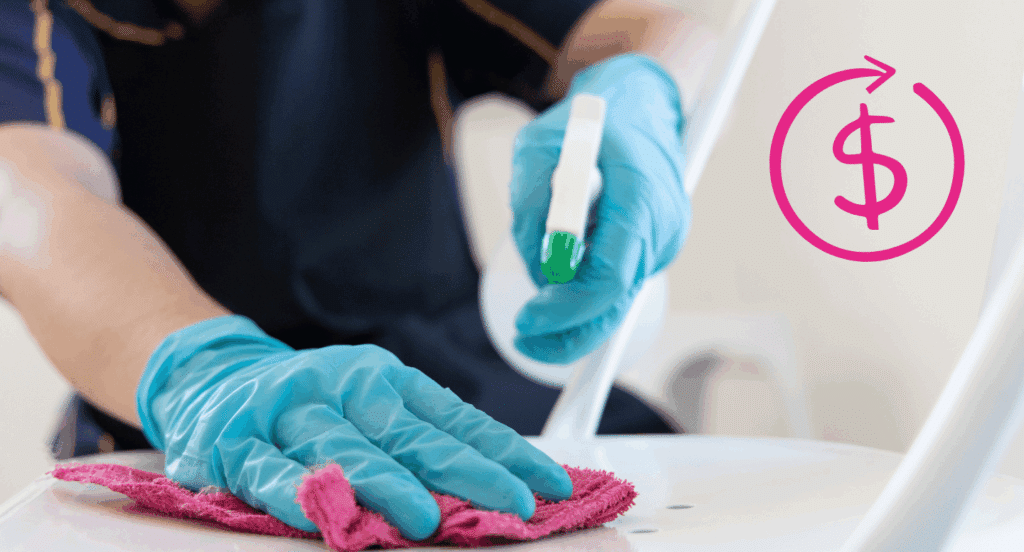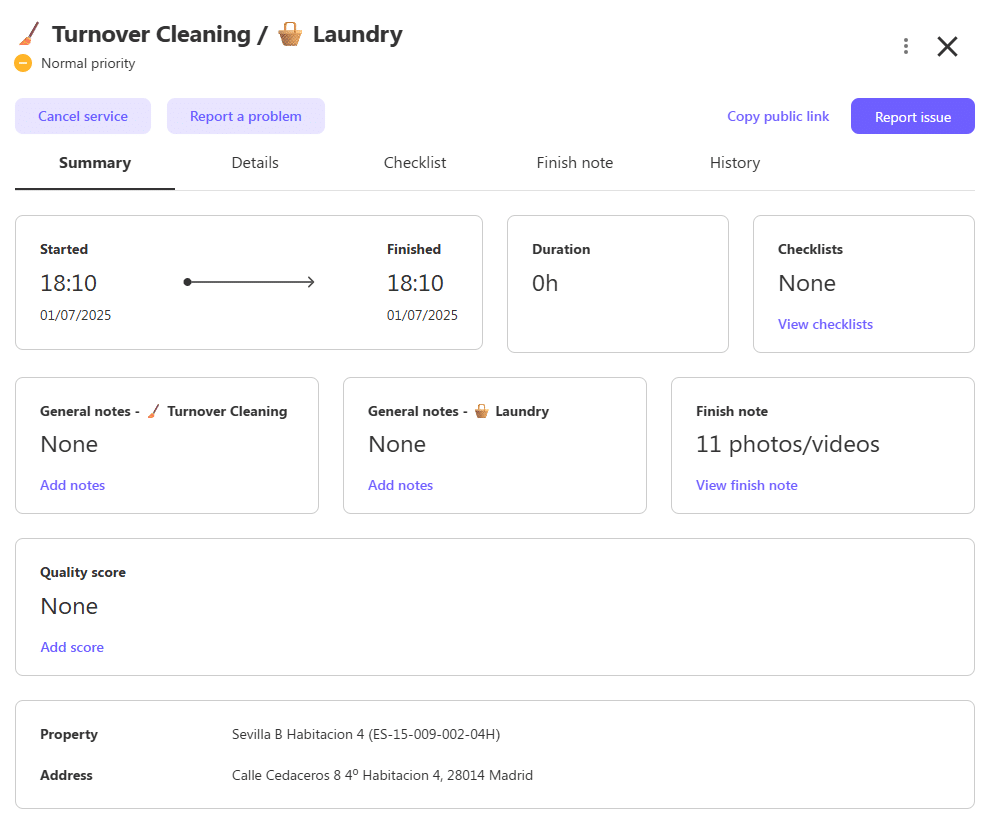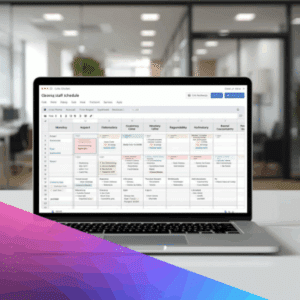Airbnb Business: Navigating The Cleaning Fee Transparency

Running airbnb business has recently been dominated by a single, often contentious, line item: the cleaning fee. For years, guests have expressed frustration over a fee that can sometimes transform an affordable nightly rate into a shockingly expensive booking.
On the other side, property managers have shared the necessity of covering real, tangible cleaning costs with the risk of deterring potential guests. The debate has been a constant undercurrent in the Airbnb business world.
However, the tide is turning. In a significant move to address this long-standing issue, Airbnb has rolled out changes aimed at creating a more transparent pricing structure for guests.
This shift, which prioritizes the “total price” in search results, is more than just a user-interface update; it represents a fundamental change in how properties are ranked, booked, and perceived. For vacation rental management companies, this isn’t a minor tweak it’s a call to re-evaluate, adapt, and innovate.
This article will serve as a comprehensive guide for vacation rental management companies navigating this new landscape. We will delve into what these changes mean for the industry, weigh the pros and cons for your business, and provide actionable strategies to not only adapt but thrive.
We will explore how to adjust your pricing, streamline your operations with powerful tools, and ultimately, leverage this new transparency to build a stronger, more successful Airbnb business.

The Landscape of Airbnb Business
The short-term rental (STR) industry is in a constant state of evolution, moving from a niche alternative to a mainstream pillar of the travel economy.
This maturation brings with it a host of changes, particularly in guest expectations and operational complexities. Today’s travelers, who are often choosing between a hotel and a vacation rental, have come to expect a level of professionalism and quality that rivals traditional hospitality. They want the space and authenticity of a home, but with the cleanliness and reliability of a hotel.
This is precisely where the friction over cleaning fees originated. A June 2022 NerdWallet analysis found that cleaning fees could amount to about 25% of the total price paid by a guest, with some fees even exceeding the nightly rate itself.This created a disconnect between the advertised price and the final cost, leading to frustration and a feeling of being misled.
Simultaneously, operational costs for property managers have been on a steady incline. Inflation has driven up the price of supplies, from toiletries to cleaning products.
Moreover, a competitive labor market has increased the cost of professional cleaning services, which are essential for maintaining high standards and ensuring quick turnovers.
According to AirDNA, the average cleaning fee in the U.S. reached a notable $161.10 per stay in 2025, reflecting these rising expenses.In fact, data shows that cleaning fees are rising across all property sizes, with private rooms seeing a 10% jump in average fees between 2024 and 2025 alone.
It’s clear that these fees are not arbitrary; they cover very real costs. Sébastien Long, CEO of short-term rental company Lodgeur, estimates that the true cost to clean a two-bedroom apartment could be as high as $175, factoring in cleaning services, laundry, and supplies.
Unlike hotels, which benefit from economies of scale with in-house laundry and staff, vacation rental managers handle geographically dispersed properties, making the logistics more complex and expensive.
This convergence of heightened guest expectations and rising operational costs has set the stage for Airbnb’s latest changes. The industry is professionalizing, and with that comes the need for a more standardized, transparent, and guest-centric approach to pricing.
The challenge and the opportunity for your Airbnb business is to bridge the gap between covering your costs and meeting the modern traveler’s demand for clarity and value.
Airbnb’s New Cleaning Fee Policy
In response to widespread feedback from both guests and hosts, Airbnb has implemented significant changes designed to demystify its pricing. The core of this initiative is the move towards “all-in” or “total” pricing, which fundamentally alters how guests see and compare listings.
Previously, the most prominent price displayed in search results was the nightly rate, with fees often presented in lighter-colored text or only revealed at the final checkout screen.This could lead to what travelers call “sticker shock.”
A listing with a $150 nightly rate could ultimately be more expensive than one at $180 if the former had a high cleaning fee. Now, Airbnb has rolled out a toggle that allows users to see the total price, including all fees (before taxes), right from the initial search page.Crucially, this feature is now the default setting globally, meaning guests see the full price upfront unless they choose to opt-out.
This is more than a simple display change; it’s tied directly to Airbnb’s search algorithm. The platform now ranks listings based on the competitiveness of their total price, not just the nightly rate.This means that properties with lower or no cleaning fees, resulting in a more attractive all-in price, are more likely to appear higher in search results. This change directly incentivizes hosts and property managers to rethink their fee structure.
The scale of cleaning fees makes this change particularly impactful. While Airbnb has stated that cleaning fees average less than 10% of the total reservation cost for properties that charge them, independent analyses have shown a different picture.
According to this NerdWallet article found the median fee was $75, but it constituted nearly a quarter of the total cost on average. AirDNA data further highlights the prevalence of this practice, showing that nearly 9 out of 10 U.S. listings include a cleaning fee.
Airbnb has clarified that checkout requests must be reasonable and should be clearly posted on the listing before a guest books. The platform has stated that basic, reasonable tasks include turning off lights, throwing away trash, and locking the door.
Anything more extensive may be seen as unreasonable, especially when a significant cleaning fee is charged. Guests can now also leave feedback specifically on the checkout process, adding another layer of accountability.
These changes collectively signal a major pivot. Airbnb is pushing the entire ecosystem towards a model where value is judged by the total cost, and the guest experience is transparent from the very beginning. For any Airbnb business, ignoring this shift is not an option.
Pros and Cons for Your Vacation Rental Business
This new era of transparency brings both opportunities and challenges. How your vacation rental management company fares will depend on your ability to leverage the advantages while mitigating the potential drawbacks.
The Pros: Building Trust and Gaining Visibility
- Increased Guest Trust and Satisfaction: The number one benefit is a boost in guest confidence. When the price they see is the price they pay, it eliminates surprises and builds trust. A transparent, all-in price feels more honest and can lead to higher guest satisfaction from the outset, reducing the likelihood of complaints down the line. As one host noted, cleaning fees are often the most common source of customer complaints.
- Higher Visibility in Search: With Airbnb’s algorithm now prioritizing the best total price, a competitive all-in pricing strategy can directly translate to better search rankings. By either reducing your cleaning fee or seamlessly integrating it into your nightly rate, your properties can become more visible to potential guests, leading to more bookings.
- Fewer Complaints and Better Reviews: Clear expectations are the foundation of a good review. By being upfront about the total cost and keeping checkout chores minimal and reasonable, you remove major points of friction. Guests who feel they’ve been treated fairly are more likely to leave positive reviews, which is the lifeblood of any successful Airbnb business.
- A More Professional Image: Adopting an all-inclusive pricing model aligns your business with the standards of the broader hospitality industry. It signals a professional operation that is confident in the value it provides, rather than one that relies on tacked-on fees.
The Cons: Navigating New Complexities
- Potential for Reduced Margins: The most immediate risk is to your bottom line. If you simply eliminate cleaning fees without carefully recalculating your nightly rates, you could end up absorbing the entire cost of cleaning, which can significantly erode your profit margins. With cleaning costs for a single turnover potentially reaching $175, this is not a trivial expense.
- Complexity in Pricing for Short Stays: A flat cleaning fee baked into a nightly rate can be problematic for shorter stays. For example, if you add $50 per night to cover a $150 cleaning cost, it might seem reasonable for a 3-night stay. However, for a 1-night booking, that same rate might appear wildly overpriced compared to competitors, even if the total cost would have been similar under the old model. Airbnb now allows hosts to set a lower fee for 1-2 night bookings, which helps, but it adds a layer of complexity to your pricing strategy.
- Intensified Marketplace Competition: Transparency cuts both ways. While it allows you to shine, it also makes it easier than ever for guests to compare your property to others on an apples-to-apples basis. This necessitates a constant awareness of your competitors’ all-in pricing and a clear strategy to ensure you remain competitive without starting a race to the bottom.
- Negative Guest Perception of Higher Nightly Rates: Some guests are conditioned to hunt for the lowest nightly rate. Even if your total price is competitive, a higher base rate could cause some travelers to scroll past your listing without ever clicking to see the details. Overcoming this requires excellent photography, compelling descriptions, and glowing reviews to signal that the higher rate corresponds to higher value.
Ultimately, the new policy forces a more sophisticated approach to revenue management. Success lies in finding the delicate balance between competitive pricing, profitability, and clear communication.
How to Adapt Your Airbnb Business
Adapting to Airbnb’s new policies requires more than just a surface-level price adjustment. It demands a strategic overhaul of your pricing, operations, and communication. Here is a blueprint for turning this industry shift into a competitive advantage.
1. Restructure Your Pricing Strategy
The goal is not to eliminate cleaning fees but to price them intelligently. Start by understanding your true cost per turnover. This includes labor, supplies, restocking essentials (like coffee and toiletries), and even the cost of travel time for your cleaning crews.
Once you have this number, your task is to integrate it into your pricing model. Avoid the simple mistake of just dividing the cleaning cost by your minimum stay length and adding it to your nightly rate. Instead:
- Benchmark Your All-In Price: Use data-driven tools to analyze your competition. Platforms like AirDNA allow you to build a custom set of comparable properties and see their average daily rate (ADR), which already includes the cleaning fee. This gives you a realistic target for your total nightly price, ensuring you are competitive in your specific market and for your property type. For instance, the average cleaning fee for a two-bedroom property in the U.S. is around $141.60, but this can vary dramatically by location, from coastal resort areas to small cities.
- Implement a Dynamic Fee Structure: Consider a variable approach. You could bake a portion of the cleaning cost into the nightly rate and still have a smaller, separate “turnover fee.” Alternatively, take advantage of Airbnb’s feature that allows for lower cleaning fees on short stays of 1-2 nights. This prevents you from pricing yourself out of the market for weekend travelers. For longer stays, the cost is spread out, making the total price more palatable.
- Analyze Your Average Length of Stay (ALOS): Your strategy should reflect your typical booking patterns. If your properties have a high ALOS, you have more flexibility to absorb the cleaning cost into the nightly rate without it appearing inflated. If you rely on short bookings, a more nuanced, dynamic fee is essential.
2. Justify Your Costs Through Exceptional Quality
If your all-in price is on the higher end of your market, you must communicate and deliver superior value. Use your listing description to subtly justify the cost. Instead of saying “price includes cleaning,” which is a given, highlight what the guest receives. Mention “professionally laundered, hotel-quality linens,” “eco-friendly, premium toiletries,” or “a spotless, sanitized space prepared by our professional housekeeping team.”
Your service must then live up to this promise. A guest paying a premium price expects an impeccably clean and well-stocked property. This is where operational excellence becomes your best marketing tool. Consistent, high-quality cleans will lead to rave reviews that validate your pricing and attract future guests.
3. Streamline and Automate Your Operations
Managing cleaning costs effectively is the key to maintaining profitability in this new environment. The more efficient your back-end operations are, the more confidently you can price your listings. This is where a robust short-term rental operations software becomes invaluable.
Platforms like Doinn are designed to automate and streamline the entire turnover process. They connect property management companies with a marketplace of vetted, professional service providers for cleaning, laundry, and maintenance. By using such a solution, you can automate scheduling, track job progress, handle payments, and use digital checklists to ensure quality control.
Not only that, but Doinn allows you to have a complete summary of each cleaning task which means you’ll have all the information: notes, photos, cleaning checklists all which will be handy if any complaints about the cleaning are raised. Take a look at the example below:

This level of automation and having data insights, ensures consistently high standards across your entire portfolio while optimizing your operational expenses.
It gives you the financial breathing room to either lower your cleaning fee or absorb it into the nightly rate more effectively, all without sacrificing margins or the quality of the guest experience.
4. Master Guest Communication
Transparency should be the cornerstone of your communication strategy.
- Set Clear Expectations in Your Listing: Be upfront about your checkout procedures. Keep them simple and aligned with Airbnb’s new guidelines: taking out the trash, turning off lights, and locking up is perfectly reasonable. Anything more should be carefully considered, as guests paying for a professional clean will not want to do the work themselves.
- Reinforce Value in Pre-Stay Messages: Use your automated messages to reinforce the value you provide. A simple message like, “We’re preparing the property for your arrival! Our professional cleaning team is ensuring everything is spotless and sanitized for your comfort and safety,” can go a long way in setting a positive tone.
By combining intelligent pricing, a commitment to quality, operational efficiency, and transparent communication, your Airbnb business can not only weather this change but emerge stronger and more trusted than ever before.
The evolution of Airbnb’s pricing policy is not merely a cosmetic update; it is a strategic response to the maturing demands of the short-term rental market.
The move towards total price transparency marks a definitive step away from opaque fees and towards a more honest, guest-centric model. For vacation rental management companies, this shift should be viewed not as a threat to profitability, but as a powerful opportunity to build trust, enhance visibility, and professionalize their Airbnb business.
Success in this new landscape hinges on a multi-faceted strategy. It begins with a data-driven approach to pricing, where cleaning costs are not simply eliminated but are intelligently integrated to ensure competitiveness without sacrificing margins. This must be supported by an unwavering commitment to quality, where a higher all-in price is justified by a demonstrably superior guest experience.
Furthermore, operational efficiency becomes paramount. Leveraging technology and property solutions, such as automation platforms like Doinn, is no longer a luxury but a necessity for managing costs and ensuring the consistent, high-quality service that modern travelers expect.
Finally, clear and proactive communication ties everything together, setting reasonable expectations and reinforcing the value you provide from the moment of booking to checkout.
By embracing these principles smart pricing, operational excellence, and transparent communication your Airbnb business will be perfectly positioned to thrive. You will not only adapt to the new rules but will also build a more resilient, reputable, and ultimately more profitable operation in the ever-evolving world of short-term rentals.









